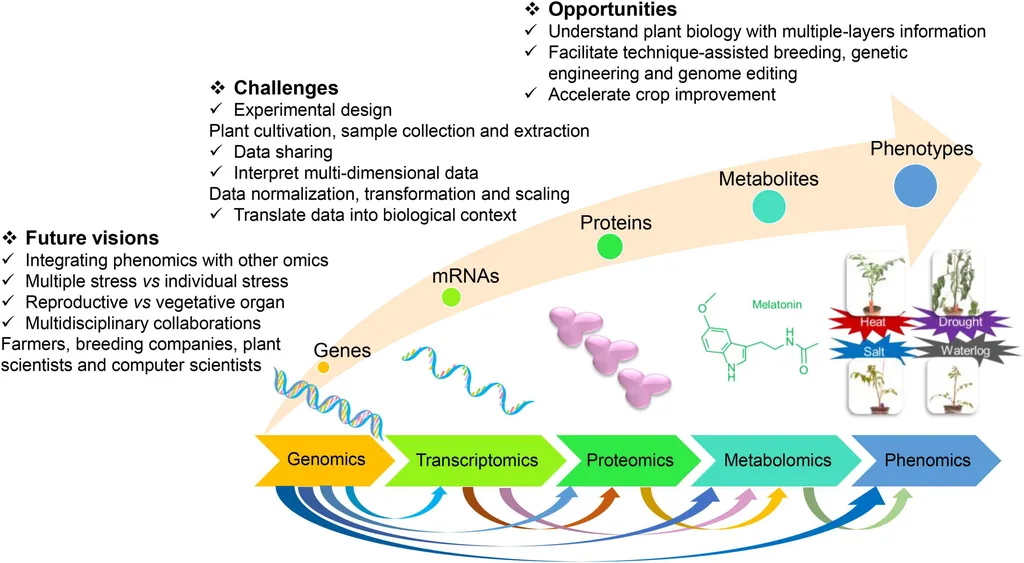In a groundbreaking study published in the journal *iScience*, researchers have uncovered a novel approach to enhancing plant thermotolerance, a discovery that could revolutionize crop resilience and have significant implications for the energy sector. Led by Zhe Kong of the Shanghai Center for Plant Stress Biology and the University of Chinese Academy of Sciences, the research explores the potential of human-derived proteins to bolster plant defenses against heat stress.
The study focuses on two human RNA-binding proteins, Heat-resistant obscure 7 (Hero7) and Hero45, which, when introduced into plants, appear to significantly improve their ability to withstand high temperatures. “We found that these proteins undergo phase transitions consistent with liquid-liquid phase separation (LLPS) under heat stress,” Kong explains. “This process correlates with the formation of larger processing bodies (PBs) and stress granules (SGs), which may protect mRNAs from heat-induced degradation.”
The implications of this research are profound, particularly for the energy sector. As global temperatures rise, the ability to cultivate heat-resistant crops becomes increasingly critical. “This discovery offers a viable strategy for engineering stress-resistant crops, which could enhance agricultural productivity and stability in the face of climate change,” Kong adds.
The study’s findings suggest that modulating LLPS could be a key to unlocking new levels of plant resilience. By leveraging the protective mechanisms of Hero7 and Hero45, scientists may be able to develop crops that are better equipped to thrive in adverse conditions. This could lead to more reliable food sources and reduced economic losses for farmers, ultimately benefiting the broader energy sector by ensuring a stable supply of bioenergy feedstocks.
The research published in *iScience* (translated to “Science” in English) represents a significant step forward in our understanding of plant stress responses. As the scientific community continues to explore the potential of LLPS and other innovative strategies, the future of agriculture and energy production looks increasingly promising. This study not only advances our knowledge of plant biochemistry but also paves the way for practical applications that could transform the way we approach crop cultivation and energy sustainability.

